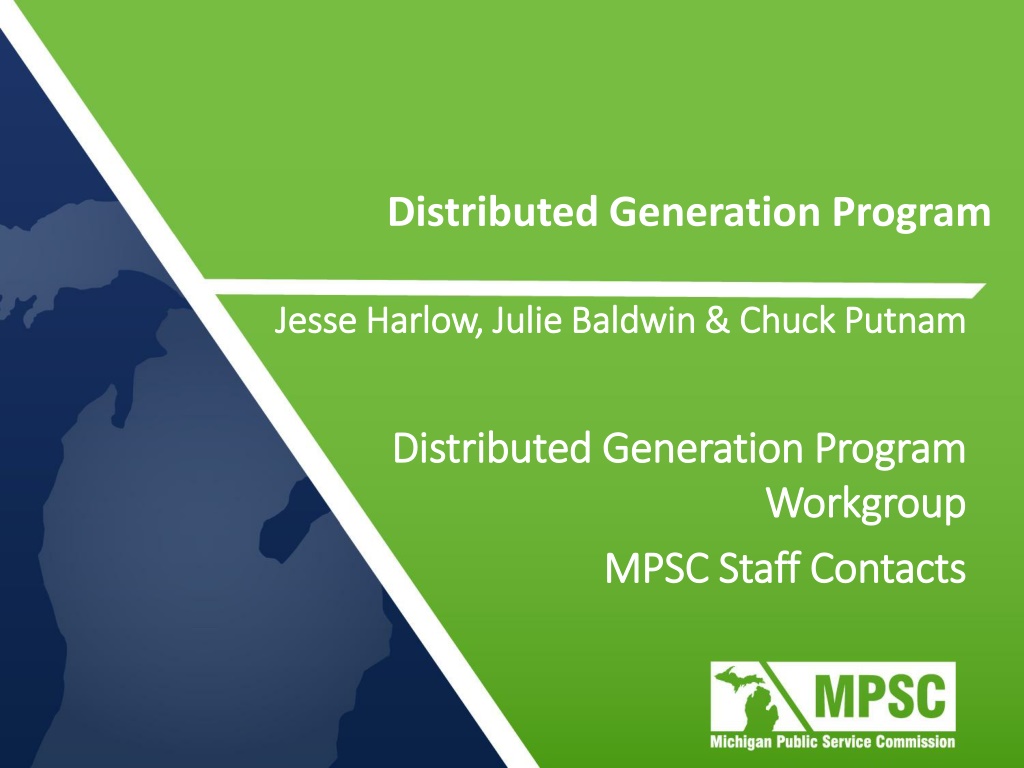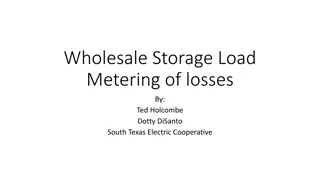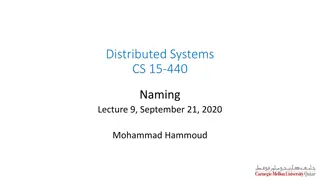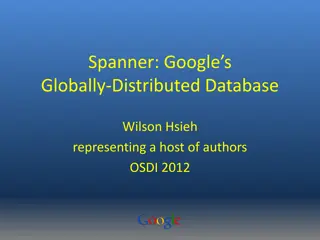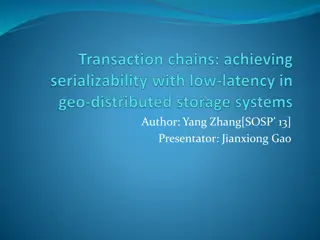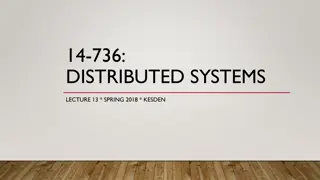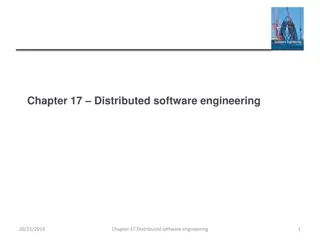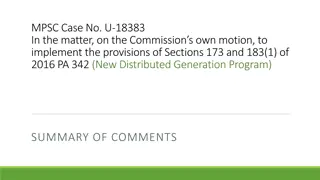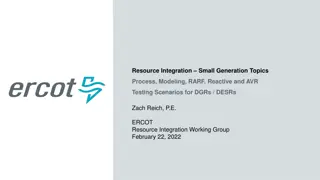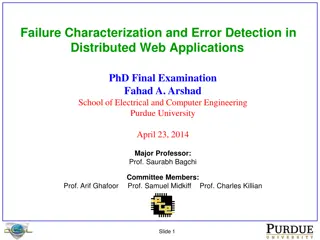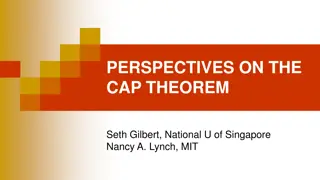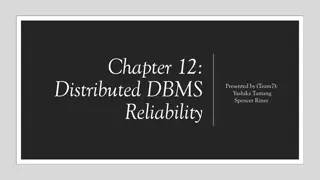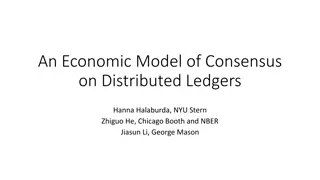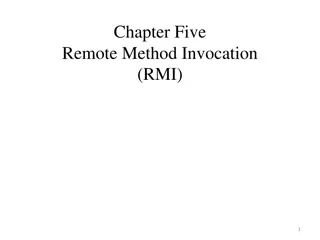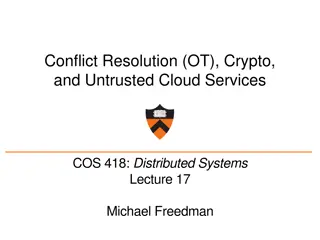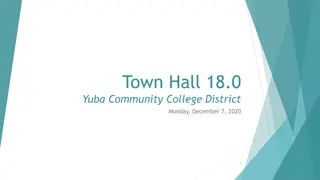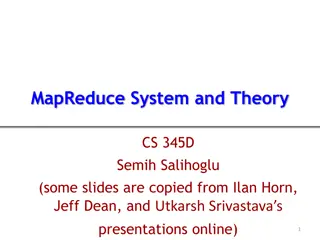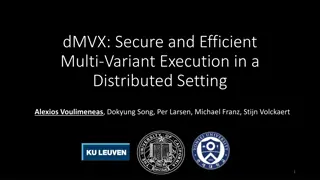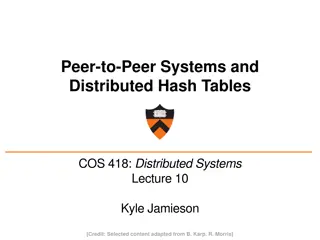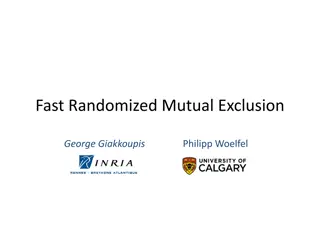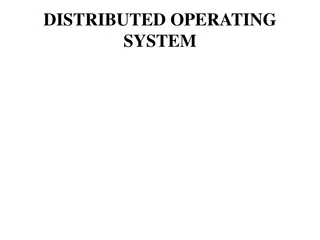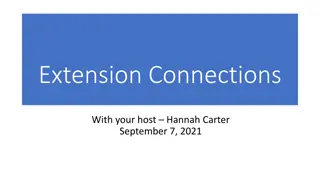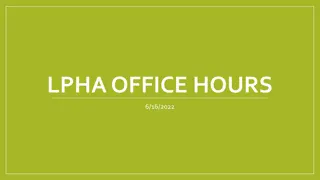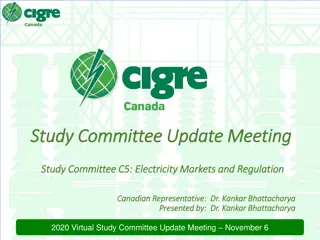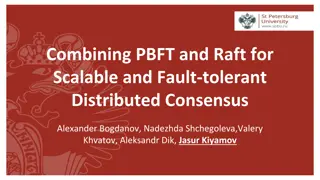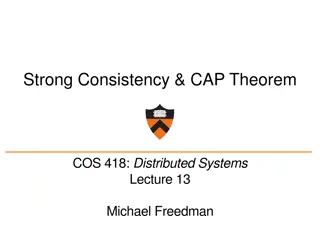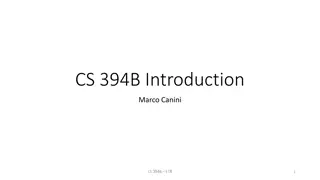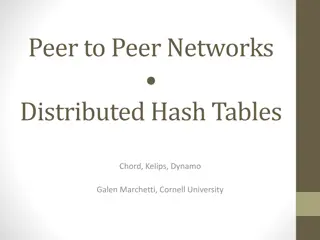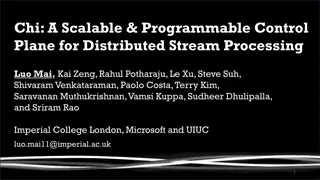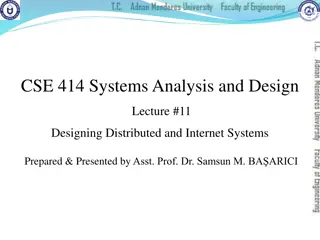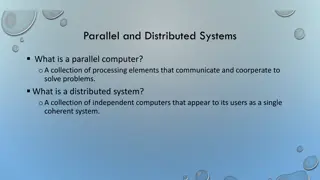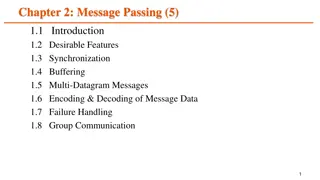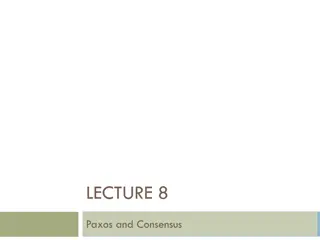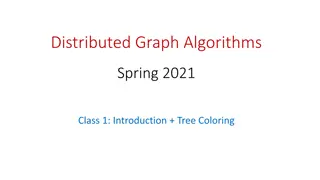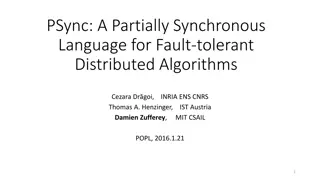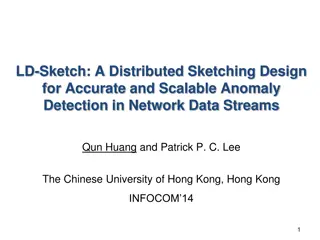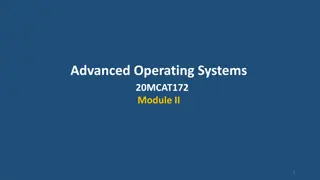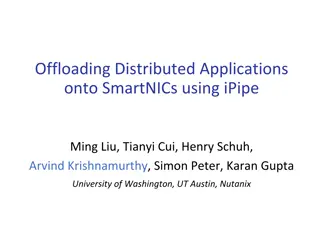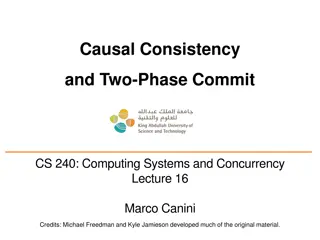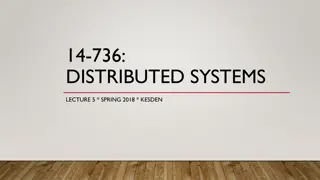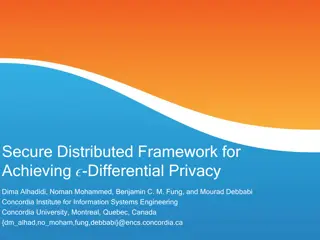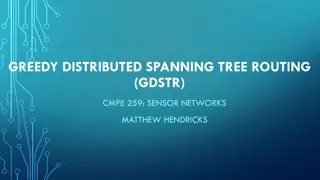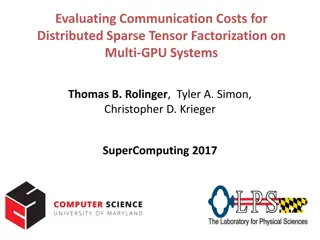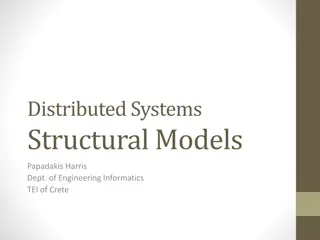Distributed Generation Program Overview and Updates
The Distributed Generation Program, as outlined in PA 342, aims to establish a tariff continuation of the current net metering program until the completion of 2018 rate cases. Key elements include eligibility for various generators, size limits, qualifying for net metering based on project size, ownership of renewable energy credits, and customer responsibilities. Three primary workgroup tasks involve investigating smart inverter functions, program implementation based on PA 342, and determining necessary rule changes for net metering and interconnection.
Download Presentation

Please find below an Image/Link to download the presentation.
The content on the website is provided AS IS for your information and personal use only. It may not be sold, licensed, or shared on other websites without obtaining consent from the author. Download presentation by click this link. If you encounter any issues during the download, it is possible that the publisher has removed the file from their server.
E N D
Presentation Transcript
Distributed Generation Program Jesse Harlow, Julie Baldwin & Chuck Putnam Jesse Harlow, Julie Baldwin & Chuck Putnam Distributed Generation Program Distributed Generation Program Workgroup Workgroup MPSC Staff Contacts MPSC Staff Contacts
Current Net Metering Program Status: Business As Usual 2016 PA 342 Section 173(1) states that the Commission shall establish a Distributed Generation (DG) Program It is Staff s intent that the program will be a continuation of the net metering program until the completion of 2018 rate cases (mid-2019) approving a new DG tariff We anticipate an order with more details in May or June of 2017
Net Metering Grandfathering 2016 PA 342 Section 183 (1) A customer participating in a net metering program approved by the Commission before the Commission establishes a tariff pursuant to section 6a(14) PA 3 may elect to continue to receive service under the terms and conditions of that program for up to 10 years from the date of enrollment.
Distributed Generation Program Overview 2016 PA 342, Part 5 DG Program Key Elements Applies to rate-regulated utilities and alternative electric suppliers Open to all customer classes Eligible generators: methane digester or renewable energy system; size limited to the customer s annual usage 1% Program Size Limit (carries forward from the net metering program) 0.5% for customers with generators 20 kW or less 0.25% for customers with generators 150 kW or less 0.25% for customers with methane digesters 550 kW or less
DG Program Overview (continued) 20 kW and less Projects Qualify for true net metering >20 kW and 150 kW and less Projects Qualify for modified net metering Renewable energy credits (RECs) are owned by the customer Application Fee cannot exceed $50 The customer pays all interconnection costs; except utility testing and inspection costs
Three Primary Workgroup Tasks Investigate grid-balancing functions of smart inverters per PA 342 Section 173 (6)(b) Develop and implement the Distributed Generation Program based on PA 342 Part 5 Determine necessary changes to net metering and interconnection rules Commence a study to design a tariff per PA 341 Section 6(a)(14) within 1 year of April 20, 2017 This may result in a distributed generation program with a tariff mechanism different from net metering
Smart Inverters (IEEE 1547a) IEEE is currently studying updates with work this work wrapping up in 2018 Some potential topics for us are: Intentional Islanding Voltage and Frequency Ride Through and Regulation VAR Support Demand Response Communication Batteries Timeline to be determined
DG Study Commission will conduct a study on an appropriate tariff reflecting equitable cost of service for utility revenue requirements To narrow the scope, Staff suggests limiting the study to customers with solar and customers with solar plus batteries The study and development of an appropriate tariff must be completed by April 20, 2018 Rate cases filed after June 1, 2018 must include the tariff resulting from the study The tariff should also include new aspects of the DG Program.
DG Study & Tariff Process Conduct a Cost of Service Study for solar DG customers and solar plus battery customers Investigate tariff mechanisms: Inflow/outflow Net metering w/adjustor Buy all/sell all Others? Select one (or more) tariff mechanism and develop a generic rate design to recover the cost of service
DG Study & Tariff Staff Report MPSC Staff will prepare a report on the study and tariff tentative issue date is January or February 2018 There will be an opportunity to comment on the report Final report will be issued in March or April 2018 During the rate case process, parties can file their own study and tariff filing for the Commission to consider
Proposed Timeline March 22: Initial DG Workgroup Meeting March 22 June 30: Plan study parameters and obtain data April 19: Second DG Workgroup Meeting May 10: Third DG Workgroup Meeting June 28: Fourth DG Workgroup Meeting June July: Conduct Cost of Service Study August 15 : Present results of COS Study
Proposed Timeline August September: Develop tariff September 25: Present tariff concepts September December: Staff drafts COS study report and tariff recommendation January/February: Draft report issued to DG Workgroup for comments Final report issued in March/April 2018 After June 1, 2018: All rate cases will include a DG Program tariff New tariff could become effective as early as April 2019 (or earlier if a rate case is settled)
Next Meeting Wednesday, April 19, 2017 1pm - 4pm Rob Ozar will discuss his inflow/outflow research IEEE 1547a discussion Distributed Generation Program Website: http://www.michigan.gov/mpsc/0,4639,7-159- 16400_79103-406256--,00.html
Michigan Public Service Commission Distributed Generation Program Workgroup Staff Contacts Julie Baldwin baldwinj2@michigan.gov 517.284.8318 Chuck Putnam putnamc@michigan.gov 517.284.8291 Jesse Harlow harlowj@michigan.gov 517.284.8320
